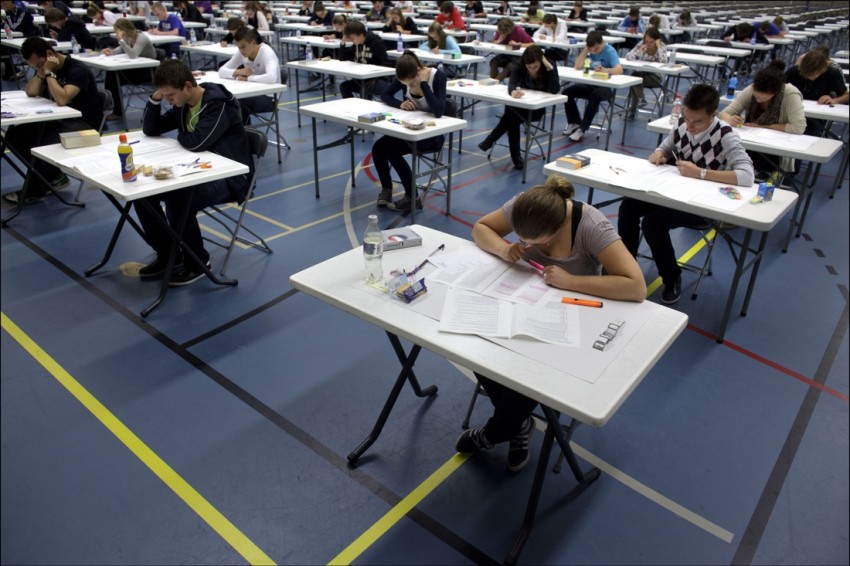As an exchange student abroad this year, I’ve noted that most of my exams were in an unusual format, one that could be an interesting alternative to traditional exams for Trinity. The “take-home exam” is a mix between homework and an open-book exam. Like normal homework given over the course of the year, it can be done at home with access to lecture notes, internet and any books or resources which might be useful. There is no rule stopping you from asking another student for pointers or having someone else read through it.
When homework (especially essays) are due, everyone has been given the question weeks, if not months, in advance. Take-home exams, however, are much closer to standard open-book exams in that the time between the release of the question and the deadline is measured in hours or days, depending on the university. The neat footnoting required for normal essays is of less importance and time is a much more critical factor. In these circumstances, there is no time for research or learning of new topics: if you aren’t very familiar with the material and don’t know exactly where to find the necessary information (case names, dates or whatever the subject requires), the open book is just a time-sink.
Take-home exams, however, are much closer to standard open-book exams in that the time between the release of the question and the deadline is measured in hours or days, depending on the university
Obviously, this isn’t an option for all subjects. Law already has open-book exams to search for specific case names and so is very well suited for this type of assessment. If calculators and computer programs aren’t allowed for a maths or physics exam, switching to a take-home exam would be nearly impossible.
Logistically, it is exceptionally easy to implement. The lecturer can simply send out an email with the question at a pre-announced time. The university I attend has its equivalent of Blackboard make the question visible, at the right time, automatically. The exam paper includes a link to Turnitin that records the time the paper was returned and checks whether it was handed in before the deadline. No effort is required of the lecturer on the day of the exam, no invigilators are needed and, most importantly, no exam hall needs to be booked. The examiner is thus able to control the exam conditions (there’s only so much research and mutual help that can be squeezed between typing in the space of a few hours). This has a lot of knock-on effects – some negative but most positive – that this logistical solution can bring to Trinity as a whole if implemented.
From the student’s perspective, the major downside is the risk of much longer exams. The exams I took were all six hours long and nearly every minute of that was spent working in front of the computer. This is also doubly tiring when it overlaps with a meal (as it inevitably does) which must either be skipped, replaced with caffeine or prepared in advance so that it can be eaten quickly. The logistical facility can further be abused by setting the exam at night (to avoid clashing with lectures) or by giving 24 hours to write an answer (the lecturer in question insisted they didn’t expect anyone to work non-stop but some reportedly did). Searching for how other universities run these exams, I find that many tend towards these very broad deadlines – some even giving up to a week! – that can turn to nightmare.
However, the benefits for students would far outweigh the downsides (not least because rules can be put in place against such abuses). The immediate consequence is that exam period would get less hectic because Trinity wouldn’t need to book the RDS for each and every module – some students could sit their exams from home. This would give the College margin to make the exam timetables more predictable, shorten the final exam period (ensuring earlier holidays and reducing the cost of renting the RDS) or make back-to-back exams happen less often.
With the Trinity Education Project looking for innovative ways to assess students and reduce the number of overall exams, take-home exams should be considered as part of these reforms
With the Trinity Education Project looking for innovative ways to assess students and reduce the number of overall exams, take-home exams should be considered as part of these reforms. With take-home exams, the implementation of Christmas exams would also be made easier and could be done gradually. Continuous assessment could be given more weight as there would be more opportunities for assessment. Generally, grades would be more reflective of work and ability: two long take-home exams give a more nuanced grade than a cramming season followed by a single short final exam. Furthermore, they reward those who take good notes or take the time to sort what they know into quickly accessible summaries as opposed to those who cram or get lucky.
Take-home exams are notoriously tough and impose a gruelling schedule, but this is what makes them effective assessment. Furthermore, they are logistically easier to implement which can help to accommodate students. So long as they are clearly time-restricted, they would be an improvement for students and Trinity could gain from implementing them.







